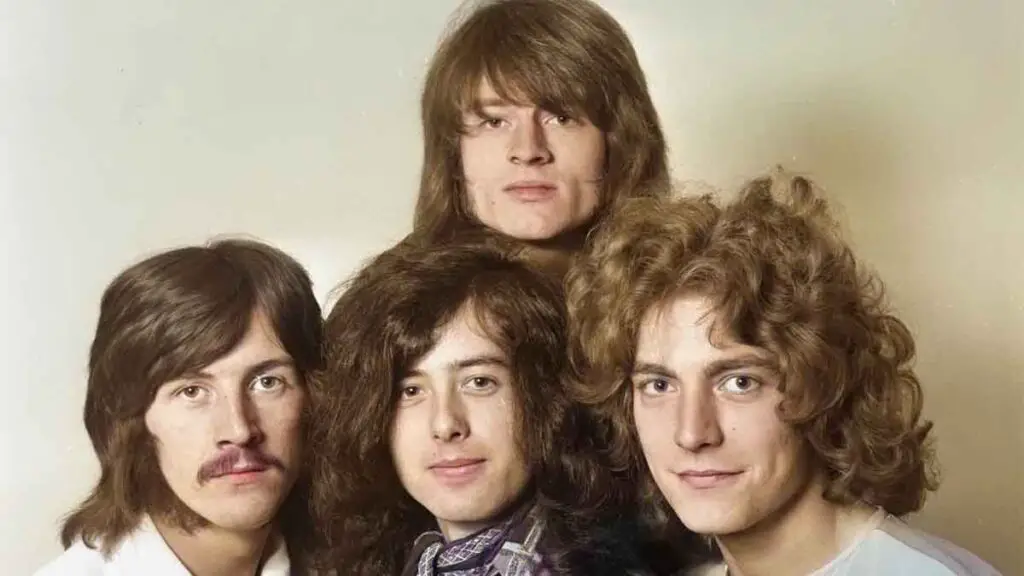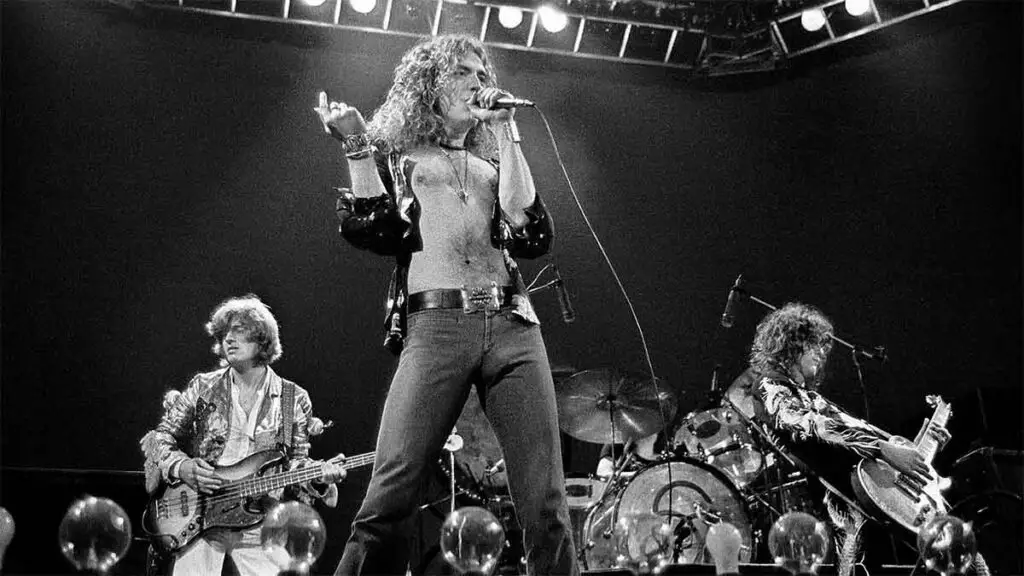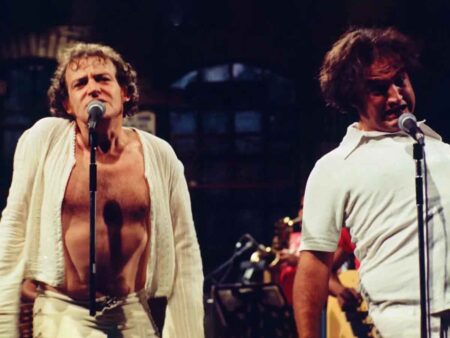Led Zeppelin’s story kicks off in a small gym in Gladsaxe, Denmark, on September 7, 1968. It might not sound like the usual spot for the birth of a rock royalty, but that’s exactly where they played their first show.
They were called the New Yardbirds back then. Jimmy Page, their super-skilled guitarist, was the only familiar face in this fresh lineup.
During that debut gig, they played intense tracks like “Communication Breakdown,” “Dazed and Confused,” and “You Shook Me.” This performance was only a tiny glimpse of the epic concerts they’d deliver in places like London’s Earls Court or the Los Angeles Forum in later years.
Just a few months earlier, Jimmy Page found himself at a major turning point. After touring with the Yardbirds, the group collapsed over creative disagreements, leaving him ready to start something new.
Page was no ordinary guitarist—he was a go-to session player for British pop and rock artists in the early 1960s. But with the Yardbirds gone, he wanted to form a band where he could stretch out musically and experiment beyond the usual three-minute pop hits.
He also had a rock-solid partner: Peter Grant, a huge 300lb ex-wrestler-turned-manager who believed in Page’s vision. Grant knew that if anyone could ignite the British rock scene—and then conquer America—it was Jimmy Page.
First, Page needed a singer. He asked around for big names like Steve Marriott of the Small Faces, but that fizzled out after some threats from Marriott’s manager.

Terry Reid, another up-and-coming vocalist, suggested a 19-year-old singer from the Midlands named Robert Plant who was fronting a band called Hobstweedle. Page and Grant saw Plant perform at a college gig, basically in front of a handful of people, and were blown away by his voice and presence.
Plant enthusiastically agreed to join, and he even brought drummer John Bonham into the fold. Bonham was a extraordinary player but wasn’t a big name yet, which meant Page also had to convince him and his wife that this new project would pay off.
The final piece of the puzzle came through a classified ad in Melody Maker. John Paul Jones, a fantastic bass player (and an all-around musical wizard), reached out to Page, hoping to join whatever new group Page was creating.
Once these four guys got into a little basement on Gerrard Street in London on August 12, 1968, they realized something magical was happening. Their first jam, “Train Kept A-Rollin’,” exploded with energy, and they knew they were onto something seriously special.
Before they officially became Led Zeppelin, the group recorded a few tracks on Texas singer P.J. Proby’s album “Three Week Hero.” These quick studio sessions were basically the earliest Led Zeppelin recordings, even though it wasn’t under their own name.
Then it was off to Scandinavia for their first mini-tour as the New Yardbirds. Reviews from the time show that fans quickly figured out this was no ordinary rock band.
After they wrapped those shows, Page hustled everyone straight into the studio to record an album’s worth of songs. He paid for these sessions out of his own pocket, which gave them complete creative freedom and saved them from the usual label meddling.
Atlantic Records loved the tapes and offered them a whopping $200,000 advance—huge money for a new rock act back then. Now officially called Led Zeppelin (a name inspired by Keith Moon’s joke about a “lead balloon”), they dropped their debut album in January 1969.

The eponymously named album roared up the charts and firmly established them as a new force in Rock . It also proved Page’s big gamble was genius: when you trust your gut, sometimes you end up making music history.
From then on, Led Zeppelin was all about risk-taking and boundary-pushing. Page once said taking chances can be intimidating, but sometimes it leads to the greatest rewards—and he was living proof of that.
Led Zeppelin became famous for thunderous live shows and ground-breaking albums that redefined what rock music could be. With Page’s guitar wizardry, Plant’s high-energy vocals, Jones’ multi-instrumental brilliance, and Bonham’s unstoppable drumming, they had hit after hit.
What started in a Danish gym on a random September night quickly turned into a rock phenomenon that still inspires new generations of listeners. The “three new men” Jimmy Page found would help shape one of the most iconic and powerful bands the world has ever seen.




